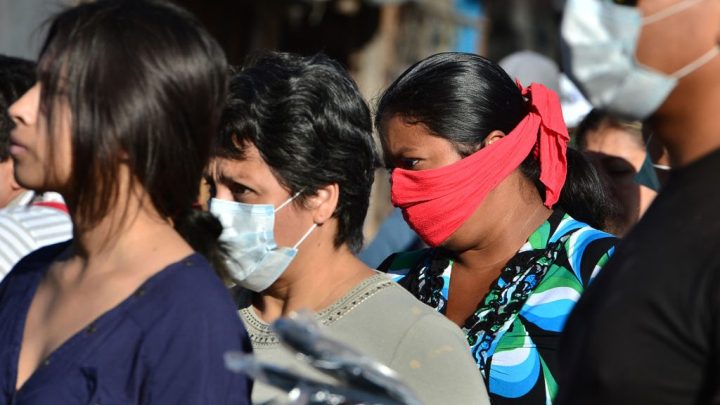
For a Honduran textile factory, the pandemic means uncertainty
For a Honduran textile factory, the pandemic means uncertainty

Supply chains can get sick, too. As U.S. retailers closed shop throughout the spring to slow the spread of COVID-19, the ripples went through the entire textile supply chain. According to the Department of Commerce, overall textile imports in May declined by 24.8% from the previous year. Some regions were affected even more.
“Things have been challenging, to say the least,” said Eric Joo, general director at the United Textiles of America, a polyester yarn manufacturer located in Choloma, Honduras. The Honduran textile industry saw a particularly steep decrease in U.S. imports in May, down over 42% from the previous year.
But for Joo, the issues started even before, when his company’s largest suppliers were locked down.
“We bring in most of our raw materials from Asia,” Joo said in an interview with Marketplace host Kai Ryssdal. “Initially, China was on lockdown, so we weren’t able to get our goods in. And the rest of industry around us was asking us to hurry up and keep delivering as the retailers and brands in the United States started panicking, trying to keep goods flowing.”
By the time the Chinese economy had started to recuperate, stores in the U.S. were closed. Joo’s factory switched over to manufacturing material for hospital gowns and other personal protection equipment.
“We actually had a surge where we hired quite a few temporary employees,” Joo said. “The U.S. government, through FEMA, placed a large order for hospital gowns and face masks, which really buoyed the industry here.”
That FEMA program was sunset, and it’s unclear if there will be further orders for his factory, Joo said. “There are new bids going out, but things are very uncertain.”
There’s a lot happening in the world. Through it all, Marketplace is here for you.
You rely on Marketplace to break down the world’s events and tell you how it affects you in a fact-based, approachable way. We rely on your financial support to keep making that possible.
Your donation today powers the independent journalism that you rely on. For just $5/month, you can help sustain Marketplace so we can keep reporting on the things that matter to you.

















